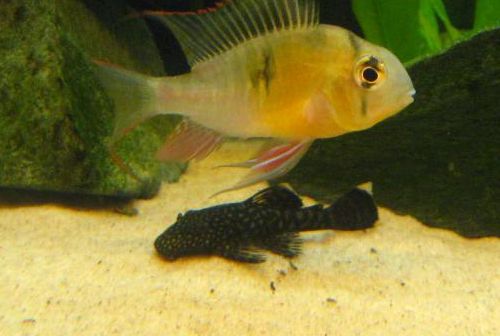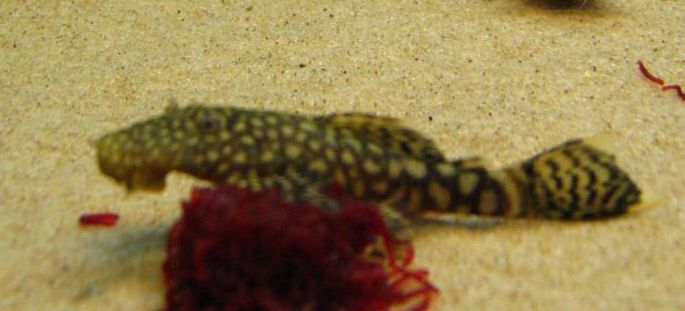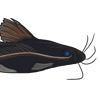One is very dark - almost black and is only about 3 inches in length. It had a rounded dorsal fin with a white edge and white edges to it's tail aswell. It has no bristles and I think it's female.

The other is now nearer 5 inches in size, is a pale-mid brown, it also has white tips to dorsal fin and tail. It is starting to grow some bristles and I suspect it could be male. This one changes it's colour depending on where it is sat and mood.

The other one has never changed colour and that is why I suspect they are different types of ancistrus.
Both were bought from the same lfs, were together in the same tank and were the same size at the time. Neither are adults yet I don't think.




